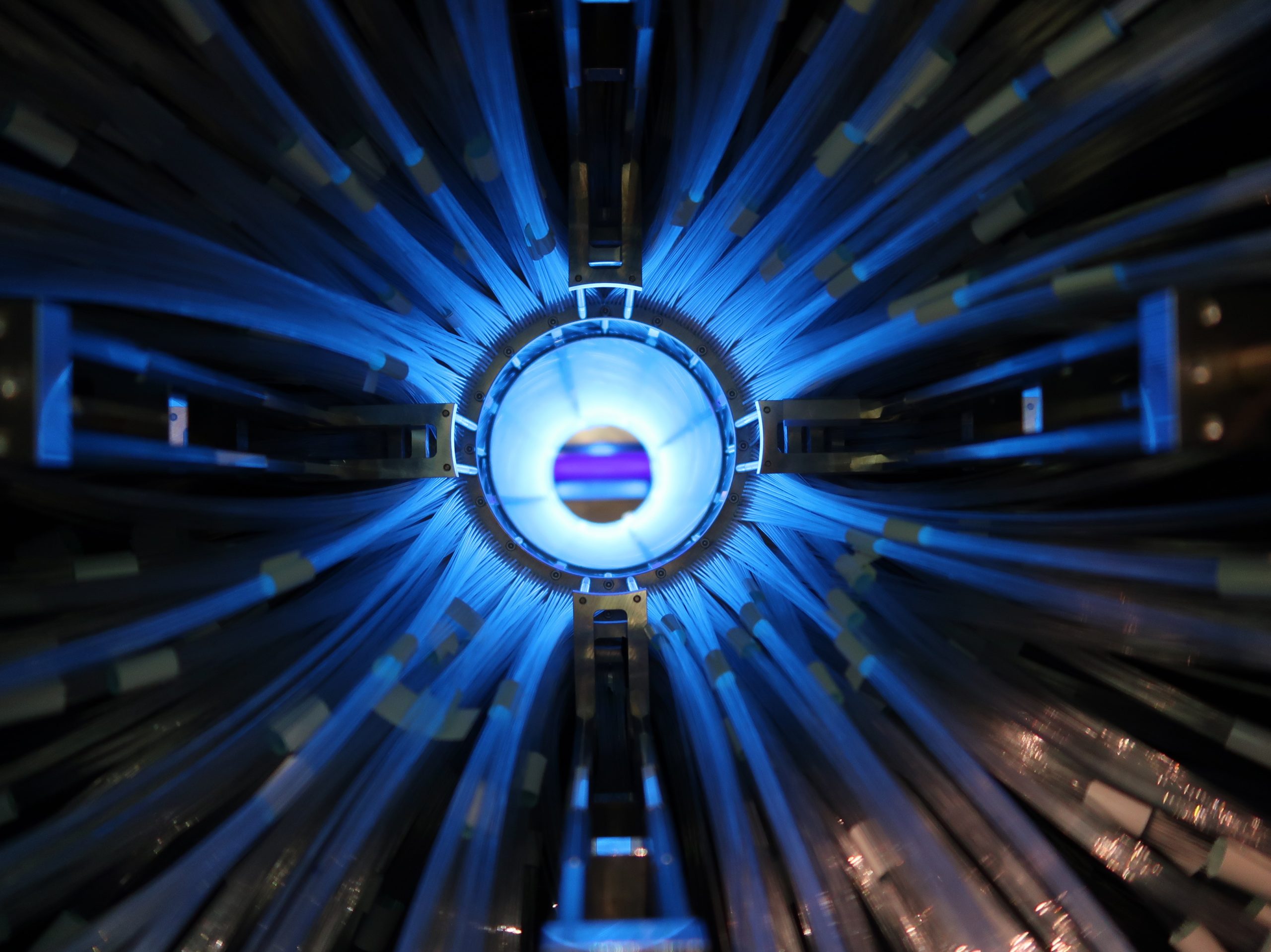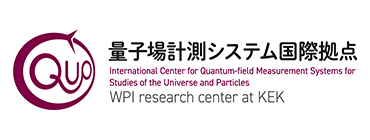- Press Release
Why Does Titanium Alloy Beam Window Become Brittle After Proton Beam Exposure? ~ Research and Development on the Accelerator Target and Beam Window Materials by RaDIATE International Collaboration ~
November 6th, 2020
-

Figure 5:Transmission electron micrographs highlight the β-phase in the Ti-6Al-4V alloy. In the electron beam diffraction pattern shown in the inset of left image, distinct streaks appear. These streaks coalesce into discreet diffraction spots (from left to right insets) with increasing proton beam exposure. By selecting one of these streaks/spots as indicated by the red arrows, the ω-phase can be resolved as a high density of bright particles as shown in the main images, that clearly coarsen in size with proton irradiation.
・A high-strength titanium alloy Ti-6Al-4V is widely employed as the “beam window” at high-intensity proton accelerator facilities, such as FNAL and J-PARC. However, this alloy suffers from radiation-induced hardening and loss of ductility after proton beam exposure. It is urgent to clarify the source of this degradation in mechanical properties to achieve stable high-intensity beam operations at these facilities, aiming to validate leptonic CP-violation by conducting long-baseline neutrino oscillation experiments.
・An international collaboration conducted high-intensity proton beam exposure on various accelerator target and beam window materials, followed by post-irradiation examinations with state-of-the-art analytical equipment. As a result, it has been clarified that in Ti-6Al-4V, a high density of nanoscale defect clusters in the primary alpha Ti phase lead to extreme hardening and loss of ductility, further exacerbated by the evolution of a high density of small “omega phase” particles in the beta phase. These observations suggest that defects in the alpha phase are most likely responsible for the observed radiation hardening, as demonstrated in other metallic systems after moderately low irradiation temperature proton or neutron irradiation. The formation and growth of radiation-induced high-density omega phase precipitates, first observed in this study in proton-irradiated Ti-base alloys, is worthy of further investigation to clarify their role in mechanical property degradation.
・Understanding the sources of radiation hardening in Ti-6Al-4V and other alloys will guide the final choice of alloy grade and proper heat-treatment method to allow for the next-generation beam window to withstand the high-intensity proton beam operation. It may also be beneficial for the development of new radiation damage-tolerant materials for fusion reactors and accelerator-driven nuclear transmutation systems.
Here is the press release.
Paper Information
- Journal
- Journal of Nuclear Materials
- Title
- Tensile behavior of dual-phase titanium alloys under high-intensity proton beam exposure: radiation-induced omega phase transformation in Ti-6Al-4V
- Authors
- Taku Ishida, Eiichi Wakai, Shunsuke Makimura, Andrew M. Casella, Danny J. Edwards, Ramprashad Prabhakaran, David J. Senor, Kavin Ammigan, Sujit Bidhar, Patrick G. Hurh, Frederique Pellemoine, Christopher J. Densham, Michael D. Fitton, Joe M. Bennett, Dohyun Kim, Nikolaos Simos, Masayuki Hagiwara, Naritoshi Kawamura, Shin-ichiro Meigo, Katsuya Yonehara, On behalf of the RaDIATE COLLABORATION
- DOI
- 10.1016/j.jnucmat.2020.152413
Link
-
November 6th, 2020
KEK|Why Does Titanium Alloy Beam Window Become Brittle After Proton Beam Exposure ? ~ Research and Development on the Accelerator Target and Beam Window Materials by RaDIATE International Collaboration ~
-
J-PARC | Website
-
J-PARC | Neutrino Experimental Facility
-
J-PARC | Neutrino Experimental Facility (For Researchers)
-
The T2K Experiment Website







